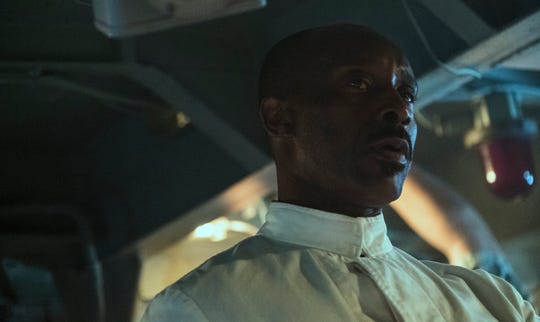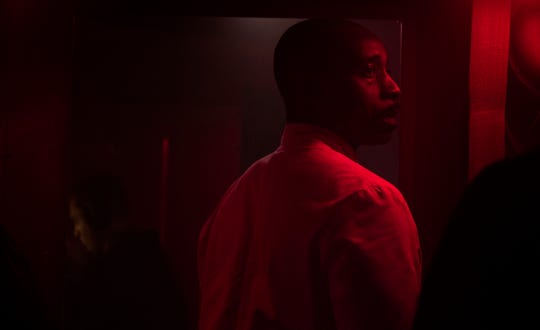In the trailer for Tom Hanks’ WWII epic “Greyhound,” a convoy of Allied ships cross the North Atlantic while pursued by packs of Nazi U-boats.
USA TODAY
Rob Morgan’s George Cleveland is not the biggest role in “Greyhound” in terms of screen time. But the “Mudbound” actor was compelled to take the important role in the naval drama to portray a Black sailor serving his country.
“This was simply a rare opportunity,” says Morgan. “Traditionally in American cinema, Black men and women’s participation in world wars is often not even represented at all. I’m blessed to have a job to give a voice to the voiceless.
“Cleveland is the real life experience that we had in World War II.”
Morgan’s Cleveland serves as a messman in “Greyhound” (now streaming on Apple+), assigned to feed and care for the ship’s commander, Capt. Krause, played by Tom Hanks. The Messman Branch, responsible for feeding and serving officers, was a racially segregated part of the U.S. Navy, the only way African Americans could serve in that branch during the war.
‘Greyhound’ battles for reality: How accurate is Tom Hanks’ World War II drama?

Rob Morgan stars as George Cleveland, one of the ship’s messmen, in “Greyhound.” (Photo: Niko Tavernise, Apple)
“They served, and when the ship engaged in battle, they took their stations,” says Morgan. “They were part of the fight, they were behind the guns.”
Hanks, who wrote the screenplay based off C.S. Forester’s 1955 novel “The Good Shepherd,” insisting on adding the Cleveland character.
“Tom wanted the experience of the Black Americans that contributed to be part of the movie. The concept was, this is how they served,” says director Aaron Schneider. “And when it came time to fight the enemy, they were out there in the line of fire, just like everyone else.”
In “Greyhound,” Krause and Cleveland have a cordial relationship that runs deep. Cleveland does his best to make sure the ship’s commanding officer takes care of himself by serving food to help him stay mentally fit during the perilous crossing of the North Atlantic’s “Black Pit,” under constant attack by prowling German U-boats.
Even if Krause never eats the food, he comes to appreciate the effort and the relationship. This comes through when Krause is deeply, but subtly, affected after Cleveland is killed in a U-boat battle and buried at sea.
“Cleveland understood Krause more than anyone else on the ship,” says Morgan. “Krause leaned on Cleveland for a certain level of support, and appreciated him. There was a closeness.”
“We were immersed in that world, and my responsibility was serving the food,” says Morgan. “I could understand being part of the camaraderie but at the same time understand being segregated. That is what I put into my character.”
He added to the experience by doing his own research on Black Americans serving in World War II, which was “eye-opening. Because you didn’t learn this in school.” Morgan read up about the 92nd Infantry Division and the Tuskegee Airmen, and hopes others are inspired to do research as well.

Rob Morgan says of his “Greyhound” research for his George Cleveland character, “I learned so much by being in this movie. I hope it will encourage people to do their own research.” (Photo: Niko Tavernise, Apple)
“I’m a proud American all day, every day,” says Morgan. “It just makes you even more proud to know our contributions have allowed all of us to say that we are American.”
But there’s a darker side to the history as well, seeing how the Black soldiers were treated in America after serving the country in war.
“It’s amazing to think about the mindset of the brothers and sisters who participated, returning to an America fixated on segregation and race,” says Morgan. “The treatment people endured, people who put their lives on the line.”
Read or Share this story: https://www.usatoday.com/story/entertainment/movies/2020/07/17/greyhound-rob-morgan-rare-role-black-world-war-ii-sailor/5452925002/
Credit: Source link

